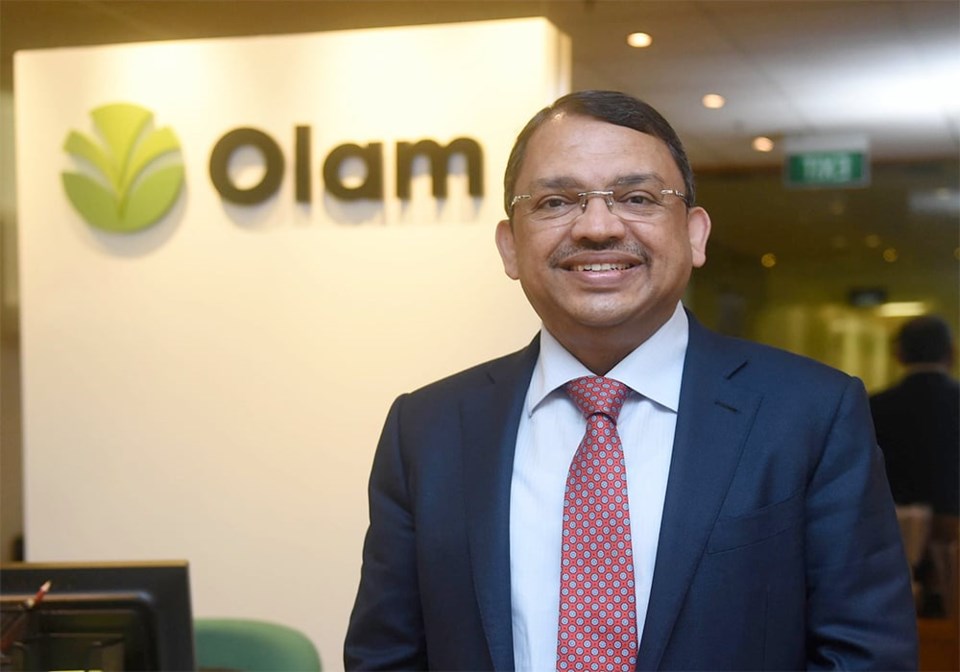WESTERN PRODUCER — The co-founder of one of the world’s largest food processors had a dire message at an international food innovation summit
Today’s agriculture system is deeply flawed and in dire need of a transformation, says the head of a major food company.
“We cannot continue to produce and consume foods the way we are doing now because it will destroy the planet,” said Sunny Verghese, co-founder of Olam.
Olam provides food, feed and fibre to 20,900 customers in more than 60 countries. The company generated US$33 billion in sales revenue in 2021.
Verghese said the problem is that 77 percent of the world’s agricultural land is devoted to producing livestock, which only provide 18 percent of our calories.
“This has to fundamentally change,” he said during a podcast to kick of the Asia-Pacific Agri-Food Innovation Summit in Singapore.
“Agriculture has to reinvent itself and reimagine itself, which is why companies like us have to be focused on sustainability.”
Food companies need to pivot to a system with less carbon intensity. The growth of the plant-based protein industry could go a long way towards achieving that goal, he said.
But it has been a painfully slow emergence. North America is the hotbed of the plant-based protein sector, yet it still comprises less than 0.5 percent of all protein consumed in that market. In Europe it is only about 0.2 percent.
Verghese said the industry has not yet figured out how to make plant-based protein palatable.
“Food is all about taste, taste, taste. Everything else comes secondary,” he said.
“So, if you can’t get the texture and flavour of the real thing through plant-based alternatives, I think adoption rates are going to be slow.”
He hopes there will be a technological breakthrough that fixes the taste issue and paves the way to increased uptake of alternative proteins.
Verghese imagines a scenario in which 25 percent of the world’s protein consumption is plant-based. That would result in a dramatic reduction in the number of acres required to feed the world.
Anuj Maheshwari, head of agri-food at Temasek, said agriculture is transitioning out of the age of extraction and into an era of science and creation.
Temasek is an investment firm with a portfolio valued at $283 billion. The company is headquartered in Singapore and is the founder of the Asia-Pacific Agri-Food Innovation Summit.
Maheshwari said agriculture has greatly benefited from technologies developed in the human health-care field that have come down in price so dramatically that they can now be used to make food.
“We’re seeing some promising results coming out of that,” he said.
He agreed with Verghese’s assessment that it is time for an agricultural revolution.
“The cat is out of the bag,” he said. “There is a clear understanding and realization that too much resources are being used by animals.”
Maheshwari said the livestock sector must become more efficient and he believes it is already on that path.
Secondly, there needs to be an increase in the production and consumption of alternative proteins.
Temasek is investing in that sector. Most of its investments to date have been in plant-based protein because there is already some acceptance in that market.
But the firm also sees considerable potential in precision fermentation. It is investing in companies like Perfect Day, which is making animal-free whey protein powder.
Cell-cultured meat is a longer-term investment opportunity for Temasek.
Verghese said change is not going to happen unless it starts at the individual level. He recently spoke at a global leadership conference and asked the audience if they knew their personal carbon and water footprints.
“There was not one single hand that was raised. Not one hand,” he said. “And then I asked them, do you know your company’s revenue? Do you know its profits? Do you know how many employees it has? Everybody knew that.”




